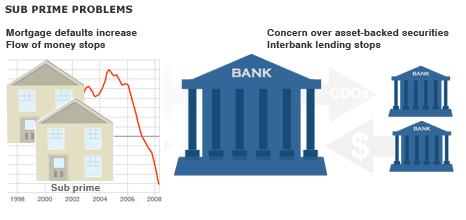CC: Debt Consolidation Personal Loans
Qualifying for a Personal Debt Consolidation Loan
Credit standards are very tight now. If you don’t have a FICO above the mid-600′s, you’re probably not even going to get a loan – much less a loan for debt consolidation. And most lenders will want to see that you’re current on: credit cards, mortgage payments, retail credit accounts (store credit cards) – and even credit accounts, on your report, like: old medical bills and hospital bills, unpaid parking or speeding tickets, court fines, or any unpaid public court judgments.
Process: Consolidation of All Debt via Personal Loan
Instead of looking for another credit card (or taking a balance transfer offer), you might be able to get a personal loan, sometimes for as much as $20,000 (or more) without having to say exactly why you need it. But banks are very afraid lately of making personal loans – especially unsecured personal loans – and the rates that they offer are high, because:
1) Small personal loans don’t make banks a lot of money, because they involve a lot of time and paperwork – and that means that, even if your bank is willing to give you a loan, based on your credit score, they inflate their interest rates – to cover the time they spend making it.
2) You probably already have a credit card account or other type of debt with your bank and it’s probably at a higher interest rate. These are the same people you are asking to get a personal loan from, at a lower rate, and is why most banks don’t even offer personal loans.
If you are able to get a personal loan that’s large enough to cover most of your debts, fantastic! Make sure it has an interest rate that is lower than the rates you were paying on the debt you consolidated, though. And, if you can get the personal loan at a fixed rate (which won’t change during the life of the loan) and over a fixed term (so you have a set monthly payment and – most importantly – a final loan payoff date), congratulations to you!
